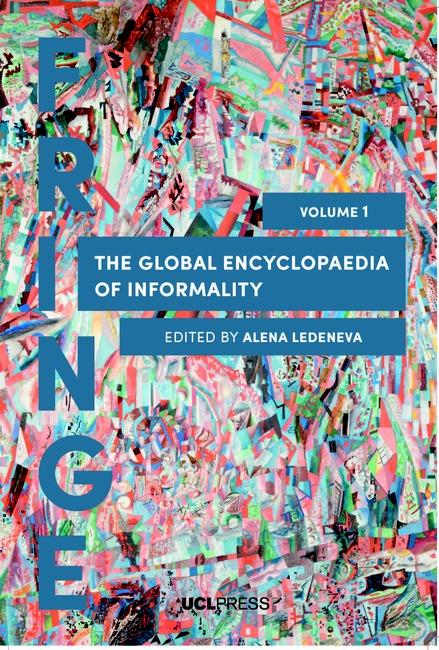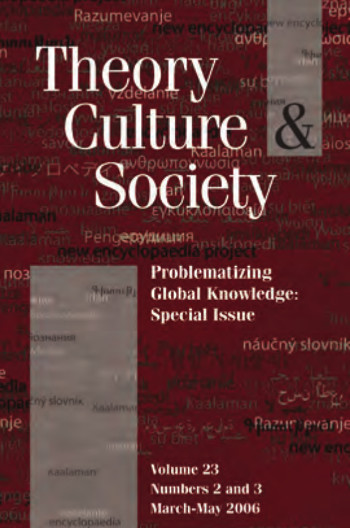The Global Encyclopaedia of Informality, 2 vols. (2018)
Filed under book, online resource | Tags: · blat, commodity, corruption, encyclopedia, gift, governance, informal economy, informality, market, social science, society, sociology, solidarity

“Alena Ledeneva invites you on a voyage of discovery to explore society’s open secrets, unwritten rules and know-how practices. Broadly defined as ‘ways of getting things done’, these invisible yet powerful informal practices tend to escape articulation in official discourse. They include emotion-driven exchanges of gifts or favours and tributes for services, interest-driven know-how (from informal welfare to informal employment and entrepreneurship), identity-driven practices of solidarity, and power-driven forms of co-optation and control. The paradox, or not, of the invisibility of these informal practices is their ubiquity. Expertly practised by insiders but often hidden from outsiders, informal practices are, as this book shows, deeply rooted all over the world, yet underestimated in policy. Entries from the five continents presented in this volume are samples of the truly global and ever-growing collection, made possible by a remarkable collaboration of over 200 scholars across disciplines and area studies. By mapping the grey zones, blurred boundaries, types of ambivalence and contexts of complexity, this book creates the first Global Map of Informality. The accompanying database (www.in-formality.com) is searchable by region, keyword or type of practice.”
Edited by Alena Ledeneva, with Anna Bailey, Sheelagh Barron, Costanza Curro, and Elizabeth Teague
Fringe series
Publisher UCL Press, London, 2018
Creative Commons BY 4.0 License
ISBN 9781911307907 & 9781787351899
xxix+434 & xxix+538 pages
Publisher, Vol. 2
OAPEN, Vol. 2
WorldCat, Vol. 2
Volume 1: PDF, PDF (10 MB)
Volume 2: PDF (15 MB)
Online resource (wiki)
Theory, Culture & Society 23(2-3): Problematizing Global Knowledge (2006)
Filed under book, journal | Tags: · aesthetics, archive, assemblage, body, classification, culture, encyclopedia, globalisation, information, knowledge, knowledge production, language, library, life, logic, media, modernity, network, public sphere, race, religion, science, space, technology, theory, time, translation, university, vitalism

In this special issue the TCS editorial board, along with colleagues in East and South-East Asia and other parts of the world, ventured in ‘encyclopaedic explorations’ in order to “rethink knowledge under the impact of globalization and digitization. The issue features over 150 entries and supplements on a range of topics which are addressed in terms of their relevance to knowledge formation, by contributors writing from a wide range of perspectives and different parts of the world. The entries and supplements are gathered under three main headings: metaconcepts, metanarratives and sites and institutions.”
Edited by Mike Featherstone, Couze Venn, Ryan Bishop and John Phillips, with Pal Ahluwalia, Roy Boyne, Beng Huat Chua, John Hutnyk, Scott Lash, Maria Esther Maciel, George Marcus, Aihwa Ong, Roland Robertson, Bryan Turner, Shiv Visvanathan, Shunya Yoshimi
With an Introduction by Mike Featherstone and Couze Venn
Publisher Sage, 2006
616 pages

